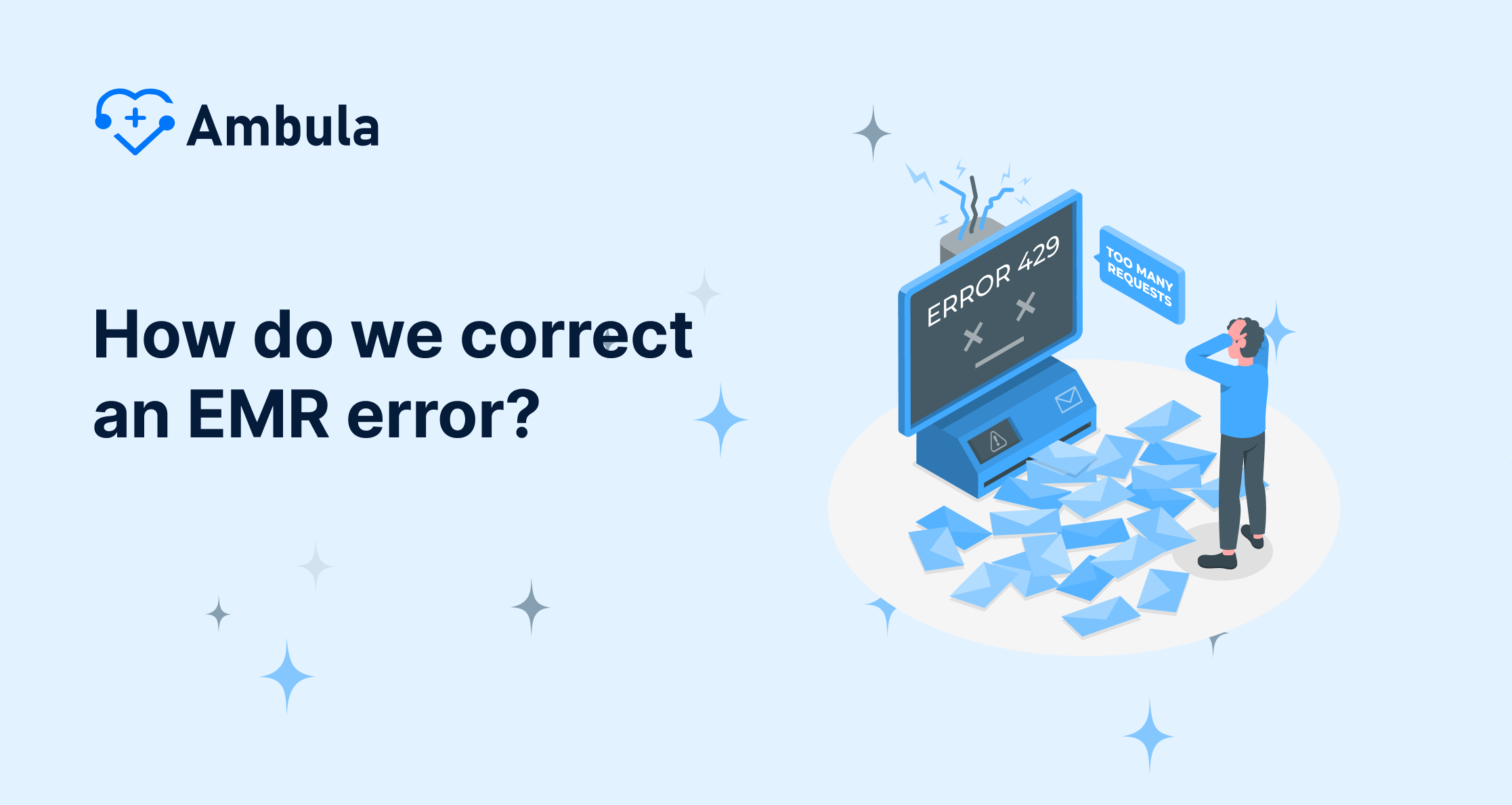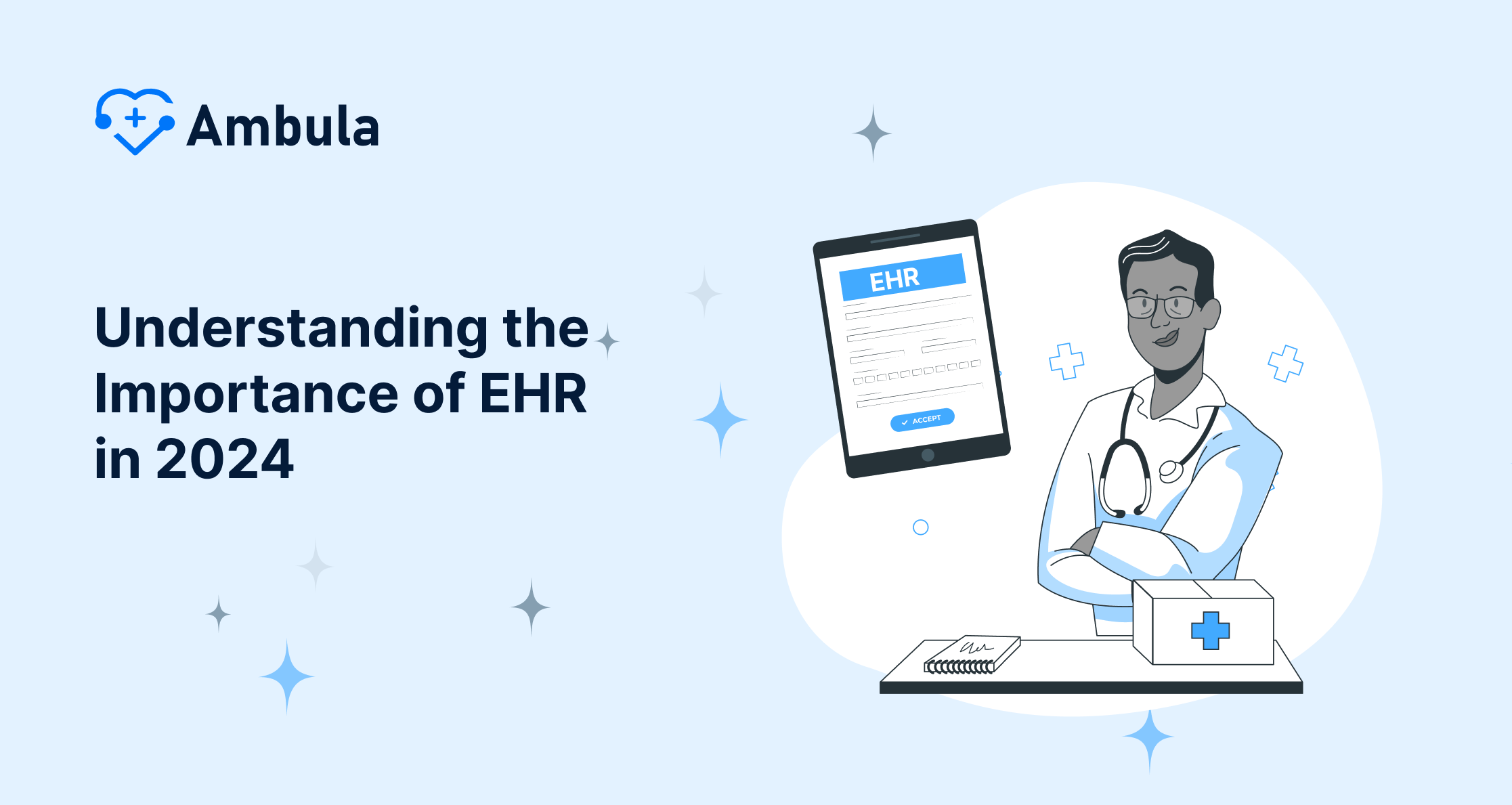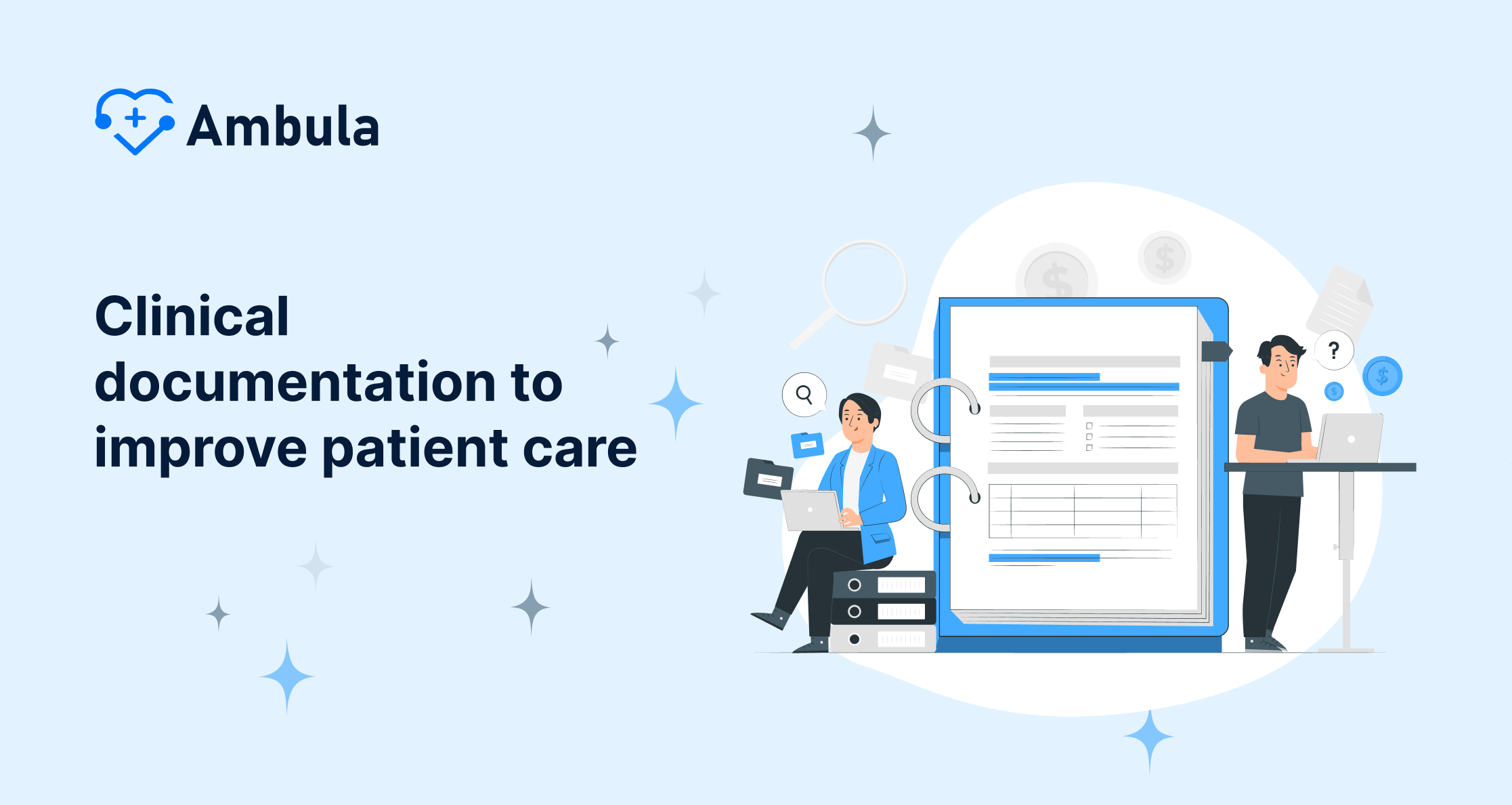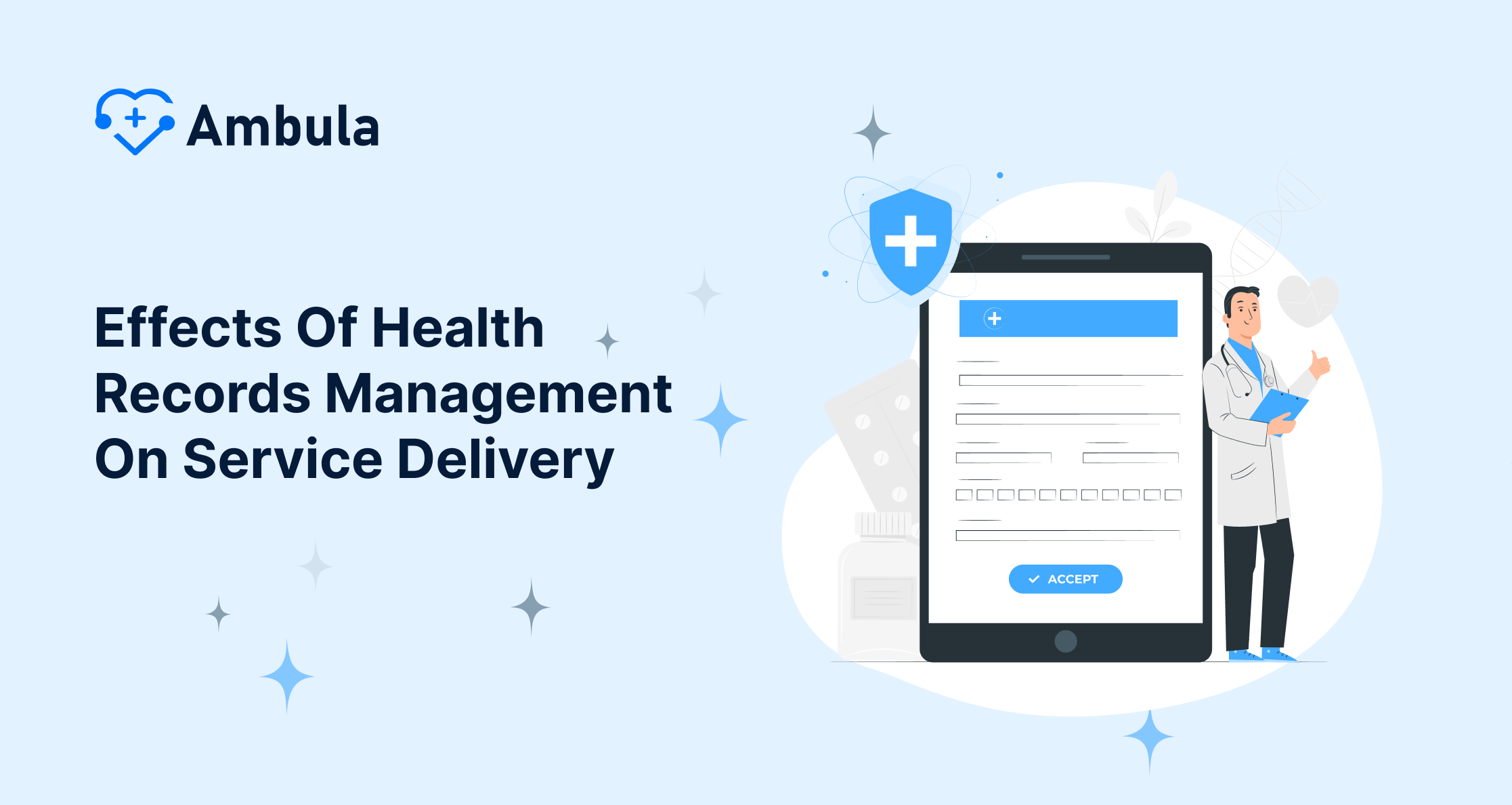Does EMR system help secure patients information?
Topics:
- What are EMR systems’ advantages?
- How EMRs benefit clinics:
- Why is keeping patient info secure important?
- What is the role of EMR with patient info security?
- The security measures when you buy your EMR system
Probably, you’ve asked, does the EMR system help secure patients’ information with the popularity of EMR growing? Also, you already know how EMR is replacing paper records for good reasons too. Because with EMR you can save time, reduce costs and improve the medical care quality. But like all online systems, some safety precautions are necessary to make sure your data is safe.
Although paper records are sensitive and prone to lose and theft, we still question EMRs. Don’t panic! Here’s the good news. EMRs are safe when you apply adequate precautions. Yet, some threats are out there. When you know better, you do better and that’s why we present what you need to learn.
What are EMR systems’ advantages?
We will answer your question, does EMR system help secure patients’ information, right after we introduce you to the EMR systems advantages. Firstly, let’s discuss the EMR systems advantages between patients and clinics. Secondly, keep in mind that stating these will help you understand EMR better. You’ll be able to make the proper links with possible security threats and measures.
How EMRs benefit patients:
1- Fewer mistakes within medical records
2- Quicker care and assessment for medical professionals.
3- Results and data tracking in time
4- Better treatment, health diagnosis, and quality of care
5- Identification of patients who have screenings and preventive visits
6- Enhanced security and privacy of patient information
7- Minimization of patient mistakes and improvement of patient care
8- Enabling decisions based on evidence at the point of care
9- Following-up data after visits like reminders for other follow-up care, self-care instructions, and links to web resources
10- Accessing for patients to their records in order to view meds and maintain the lifestyle changes to improve health
How EMRs benefit clinics:
1- Saving space by getting rid of paper records that need storage management and recovery
2- Optimization of increased patients’ numbers per day and workflow
3- Reduction of operational costs and administrative difficulties
Other benefits of EMRs for clinics include reminders and alerts, scalability and tracking of electronic messages, etc.
Check out these articles after you’re done
Understanding Data Security
Data security is a multifaceted discipline that thwarts unauthorized access to digital information, including EMRs. Within the healthcare sector, data security protocols fortify establishments against an array of threats, such as cyber-attacks, data breaches, and other security vulnerabilities. These risks, if left unchecked, can culminate in the theft, fraud, or misuse of patient records, posing severe consequences for both individuals and institutions.
Effective data security encompasses a diverse array of techniques, including data encryption, masking, disaster recovery protocols, and tokenization. Furthermore, it extends beyond mere technological solutions to encompass user privacy considerations, comprehensive security policies, and a steadfast commitment to upholding ethical principles.
The Criticality of Data Security in Healthcare
Ensuring data security within the healthcare domain is an indisputable priority, as the frequency and severity of cyber attacks and data breaches have escalated alarmingly in recent years. The repercussions of such incidents can be far-reaching, involving financial losses, reputational damage, and, most significantly, the compromise of patient privacy.
Fortifying Against Cyber Threats
The invaluable nature of protected health information (PHI) has rendered healthcare organizations increasingly attractive targets for cybercriminals. A successful breach can have devastating implications, including financial losses, reputational harm, and, most crucially, the violation of patient privacy. Implementing robust data security measures is essential to mitigating these risks and fostering a resilient cybersecurity posture.
Ensuring Regulatory Compliance
The healthcare industry is subject to stringent regulations aimed at safeguarding patient privacy and data security. The Health Insurance Portability and Accountability Act (HIPAA), a federal law, establishes rigorous standards for the security and privacy of PHI. Non-compliance with HIPAA can result in substantial fines, lawsuits, and legal penalties. For instance, as reported by HHS.gov, Banner Health consented to pay $1.25 million to settle a cybersecurity breach that affected nearly 3 million individuals.
Cultivating Trust and Confidence
Robust data security measures in EMRs are pivotal in fostering trust and confidence between patients and healthcare providers. Patients must have the assurance that their personal information is safeguarded and that they maintain control over who can access it. This trust is essential for promoting open communication and ensuring the accuracy and completeness of medical records, which ultimately contributes to improved patient outcomes.
Enhancing Patient Care
Data security in EMRs can directly contribute to improved patient outcomes. Access to comprehensive and detailed patient data empowers healthcare practitioners to make more informed treatment decisions, ultimately enhancing the overall quality of care. However, if patients harbor concerns about the security of their data, they may be reluctant to share it, leading to incomplete or inaccurate medical records and potentially compromising patient care.
What is the role of EMR in patient info security?
We answered your inquiry: does the EMR system help secure patients’ information? Now, what is left is clarifying the EMR role regarding data security. But before that, let’s take a look at which information takes part in the patient record:
- Surgical history
- Medical encounters
- Demographics
- Developmental history
- Immunization records
- Habits
- Social History
- Family history
- Medical allergies and medications
- Obstetric history
- Test results
- Progress notes
- Prescriptions and orders
- Plan and assessment
- Physical examination
- Chief complaint
- History of the present illness
How EMRs help with securing patients’ information? EMRs’ structure ensures that medical charts are accurate and complete. Plus, EMRs alert you to any incomplete, missing, or possible not-so-accurate charts. Naturally, EMRs record in real-time, making data instantly available to designated users with security. With EMRs, you can share medical notes and improve workflow.
Therefore, cybersecurity is very important. According to HIPPA’s Security Rule of 2003, there are standards for protecting the confidentiality of your patients. Truth is, EMRs follow providing safeguards, whether physical, administrative, or technological. So your patient information is secure. Now that you know what HIPAA stands for, you’ll feel more secure with your EMR.
The security measures when you buy your EMR system
Data loss and cyber crimes have bad consequences in healthcare more than any other practice. for It’s a question of life and death. How can you choose the EMR system with the best security measures? Protect yourself financially, legally, and reputationally by choosing EMRs with:
- HIPPA and HITECH compliance: both are baseline standards for security.
- Audit trail with critical clues: this discourages fraudulent activities like hacking.
- Updated data centers: protecting data against physical and cyber threats is important.
- Access to real-time experts: they’ll help with anything that threatens security and spare you the trouble of worrying about serious problems.
Finally, you get the big picture. Security is more than important in healthcare; EMRs help you remain protected when choosing wisely. Besides, you can’t achieve wisdom without knowledge, and we’re here to back you up!
For more information about EMR security, call the Ambula Healthcare team: (818) 308-4108! And now How does EMR affect health care as a whole?





